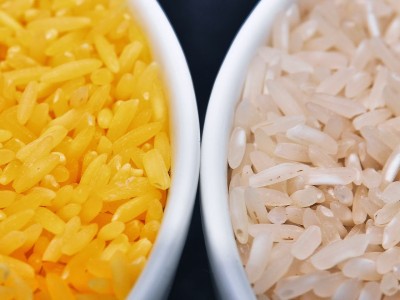Biotechnology and the Agrarian Crisis: Streams of Profit, GMO and Rivers of Poison

Handing over agriculture to Big Agritech concerns is akin to letting the foxes guard the hen house. What do they care if they wreck the environment or human health with their chemical inputs? The more chemicals applied to crops, the better. It’s good for business. The bottom line is increased product sales.
What is good for business however is not good for agriculture. Big Agritech cannot provide genuine solutions to the agrarian problems it has created with its ‘Green Revolution’. For example, agriculture in India’s Punjab state (agritech’s original poster boy of the ‘Green Revolution’) is facing an inevitable crisis, in terms of pesticide use causing cancer, falling crop yields and groundwater depletion [1]. The model it has adopted is unsustainable. But this is a global phenomenon, as indicated by what is also happening in Argentina and the deleterious health impacts of genetically modified organisms (GMOs) and the ever-increasing, widespread and uncontrolled use of toxic chemical inputs [2]. What Big Agritech cannot get away with in places like Europe, it does so elsewhere.
Big Agritech is based on short-termism. Its predator corporations are engaged in managing and thus profiting from the crises they themselves have conspired to produce with their destruction of traditional agriculture and local economies and their chemical inputs and genetic engineering. By its very nature, this type of agriculture is designed to stumble from one crisis to the next. And it will do so by hiding behind the banners of ‘innovation’ or ‘research and development’ as it wrecks the natural ecology and attempts to arrogantly beat nature into submission.
With each new ‘fix’, with each technology, with each new pesticide, herbicide, GM innovation, we become further removed from with nature as powerful corporate entities attempt to dominate it with some or other biotechnology that further damages both ourselves and the environment. But, it’s all good business. And once peasant economies are destroyed and remaining farmers are forced onto the treadmill of chemical inputs and GMOs, it can be difficult to get off. There’s always money to be made from a continuous state of crisis management (aka ‘innovation’ and bombarding farmers with a never-ending stream of new technologies).
Ramon J Seidler is a former Senior Scientist at the Environmental Protection Agency Office of Research and Development. In a recent article, he writes that chemical companies that historically have produced DDT, PCBs, bovine growth hormone, Agent Orange, glyphosate products and, more recently, neonicotinoids have inserted themselves squarely into the seed crop production component of the world’s food supplies.
He argues:
“These corporations have a clear conflict of interest when it comes to reducing the numbers and concentrations of chemicals on crops, because any such reduction has an immediate impact on their financial bottom line. There is also a clear conflict of interest when it comes to altering farm management to avoid insect and weed resistance if it results in using fewer chemicals. As University of Nebraska entomologist Lance Meinke says, “economics are driving everything.” [3]
Over 99% of GMO acreage in the US is engineered by chemical companies to tolerate heavy herbicide (glyphosate) use and/or produce insecticide (Bt) in every cell of every plant over the entire growing season. The result has been rapidly created pest resistance – the opposite of integrated pest management where judicious use of chemical controls is applied only as necessary. There are now huge swaths of land infested with “superweeds” and “superbugs” resistant to glyphosate and Bt, meaning more volume of more toxic pesticides are being applied.
Seidler argues that the use of systemic insecticides, which coat GMO corn and soy seeds and are incorporated and expressed inside the entire plant, has skyrocketed in the last ten years. This includes use of neonicotinoids (neonics) which are extremely powerful neurotoxins that contaminate our food and water and destroy non-target pollinators and wildlife such as bees, butterflies and birds.
An ever-increasing amount of older much more toxic herbicides like 2,4 D and Dicamba are being sprayed along with huge volumes of glyphosate to deal with superweeds. Seidler notes that when the pro-GMO lobby and sections of the media talk about the wonders of GMOs, they fail to mention this. Moreover, they conveniently refer to data that predates the massive increases in toxic chemical inputs that have been witnessed over the past decade or so.
A recent international report by some 60 scientists warns that current agricultural practices in developed nations cannot be maintained [4]. Energy inputs, water table depletion, environmental destruction, deleterious health impacts, habitat loss, the impoverishment of farmers and farmers who have lost their land, the undermining of food sovereignty and food security and loss of natural biodiversity mean that rapid and significant changes in the management of agricultural production systems are essential.
The call from Seidler and many others is for agricultural practices that replace the resources consumed by intense commercial agriculture through the use of various cover-cropping strategies, ecosystem-friendly crop rotations and less use of toxic chemicals.
Big Agritech is sacrificing food security for profit [5], is profiting from the human misery and the destruction of traditional agriculture [6], is hijacking regulatory bodies to get its toxic products onto the market [7,8] and is driving a sustained attack on activists who have genuine concerns about its methods and impacts [9].
Monsanto, DuPont, Bayer, Dow, BASF, Cargill and a handful of other players increasingly dominate agriculture via control of seeds, supply chains and product inputs. Their capturing of markets, official bodies and farming represents a major threat to food democracy [10]. Big Agritech’s destruction of rural economies and the poisoning of our health and the environment is nothing less than blatant criminality.

